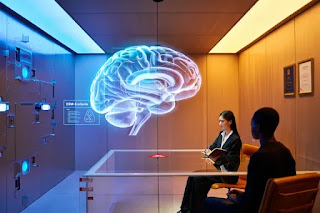Gavazz, J. (2025).
On Board with Psychology.
American Board of Clinical Psychology
Abstract
Background
Maintaining competency in current suicidology research is essential for psychologists to provide evidence-based care to individuals at risk for suicide. The Fluid Vulnerability Theory (FVT) provides a fundamental framework for understanding the dynamic and temporal nature of suicide risk, conceptualizing risk as fluctuating rather than static.
Purpose
This clinical review integrates contemporary FVT research to inform evidence-based assessment and intervention strategies for practicing psychologists working with at-risk populations.
Clinical Framework
FVT distinguishes between baseline risk (chronic, stable predispositions) and acute risk (dynamic states reactive to stressors). Recent research demonstrates that suicide risk follows nonlinear trajectories, with sudden crisis onset often occurring without overt warning signs. High-risk individuals exhibit distinct patterns, oscillating between baseline and elevated risk phases, while low-risk individuals typically stabilize in single states. Emotional regulation capacity emerges as a critical clinical factor, with compromised self-regulation predicting prolonged vulnerability and erratic state transitions.
Practice Applications
Contemporary research supports five evidence-based clinical recommendations: (1) implementing frequent temporal assessments using tools like ecological momentary assessment rather than relying on static evaluations; (2) assessing patients' self-regulatory processes during acute stress as early intervention points; (3) targeting specific mechanisms including loneliness and anxiety sensitivity in treatment planning; (4) closely monitoring recent stressors—particularly relationship conflicts, perceived failures, and disciplinary actions—that differentiate ideation from attempts; and (5) customizing interventions based on individual risk subtype patterns and nonlinear trajectories.
Clinical Significance
Understanding temporal dynamics of suicide risk enables psychologists to better identify at-risk individuals, time interventions appropriately, and tailor treatment approaches to specific risk states. This dynamic approach represents a significant advancement over traditional static risk assessment models, offering more precise and clinically relevant suicide prevention strategies for diverse populations and practice settings.























